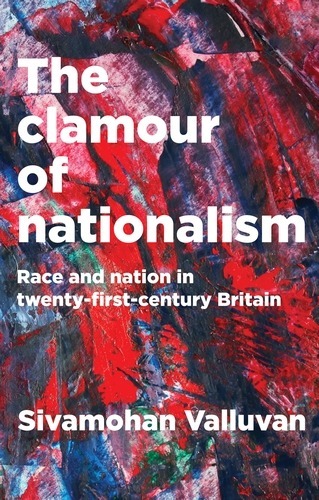
This article is a preview from the Winter 2019 edition of New Humanist
The Clamour of Nationalism: Race and Nation in Twenty-First-Century Britain (Manchester University Press) By Sivamohan Valluvan
Nationalism is a dirty word. At least for self-declared liberals, nationalism – or too much of it – leads to intolerance, xenophobia and racism. For those of us currently living in Britain, it was nationalism (or “nativism”) that brought us Brexit. If the Leave vote was a measure of small-minded nationalism, Remainers might be described as anti-nationalist and cosmopolitan. In this account, Leave vs Remain can be re-narrated as the “nativists” vs the “liberals”, and for the “liberals”, nationalism is something which happens over there: in forgotten industrial towns, or among resentful older voters in the Home Counties.
But nationalism is clearly not the preserve of the small-minded and the right-wing. The nation remains our most entrenched form of political imagination and the most concrete institutional arrangement through which we enact our political lives. This applies to Remainers as much to Leavers. The version of the British nation evoked by Remainers might be liberal and European, but that does not necessarily make it any less exclusionary. For many liberals, non-European migrants and minorities, especially Muslims, are still effectively excluded from the British nation, even if this exclusion is justified through concerns about democracy and integration.
The sociologist Sivamohan Valluvan offers a vital resource for understanding nationalism. For Valluvan, contemporary nationalism draws on and shapes a variety of different political traditions – and that is what makes it potentially so dangerous. Crucially, he argues, nationalism is always defined against outsiders; the people who are deemed not to belong. The “spectre of non-belonging” appears in response to “various economic, cultural and security concerns”. The nation “has no inevitable political complexion other than that of its own exclusionary ethno-racial desire”. As a result, movements from across the political spectrum can become embroiled in nationalistic politics when their programmes focus on those who do not belong in the nation. We see the dangers of liberal and left nationalisms most clearly in relation to the demonisation and exclusion of Muslims and immigrants – forms of ethno-racial exclusion which operate so effectively because they appeal to such diverse political constituencies – as well as via appeals to the “left-behind” white working class. Indeed, Valluvan is most insightful when discussing Corbyn’s Labour Party and the dangers of facile petitions to the British nation: “Nationalism is not a viable vehicle towards other political ends, not least leftist collectivism. Nationalism is, in the final instance, primarily about its own exclusionary racisms.”
Valluvan provides chapter-length discussions of four main political forms of British nationalism: liberal, conservative, neoliberal and communitarian. These different discourses transgress party divides, and can be mobilised by the same actors at different points and in combination. For example, an individual might be motivated by conservative nostalgia for an imagined monocultural Britain of the past, as well as left-leaning communitarian arguments about the welfare state and “nativist” demands for decent work and public services for the nation’s insiders. Another individual might express liberal concerns about the cultural or religious practices associated with outsiders threatening free speech and tolerance, while also buying into the neoliberal idea of the nation that says migrants are welcome so long as they contribute to the economy.
Valluvan separates these different strands so that we can observe them more clearly, arguing that it is precisely this “ideological multiplicity” that makes contemporary British nationalism so persistent.
Valluvan’s intellectual background is in cultural studies, and he builds on the ideas and approach of theorists like Stuart Hall to great effect – writing, as Hall once put it, “culturally about politics and politically about culture”. As a result, The Clamour of Nationalism avoids economic reductionism, transcends the short-termism of party politics, and questions the apparent newness of “populism”.
Importantly, alongside his critique of liberal and conservative ideas about the nation, Valluvan also turns his attention to how these concepts play out on the political left. Where liberals might imagine (wrongly) that nationalism is something that happens “over there”, some socialists, including parts of the Corbyn-led Labour Party, imagine that nationalism can be harnessed, sanitised and repurposed to progressive ends.
This was voiced most confidently during the 2018 World Cup, which apparently proved that the left could do national pride. More worryingly, left nationalism also shapes prominent arguments that immigration must be controlled in order to protect British workers’ rights and pay, or to maintain cultural cohesion. Just like the other nationalist strands discussed in the book, left nationalisms define the nation by what (and who) they exclude.
Indeed, Valluvan’s concern is not primarily with party politics, but with identifying openings for future resistance to nationalist politics. He finds these in the reality of urban multiculture – “the well-worn, deeply lived-in ethnic and racial diversity that captures so many British people’s everyday realities” – which offers “a ready-made counterpoint to nationalist capture”. The question is whether this can be harnessed within any formal political programme.
The Clamour of Nationalism is a compelling cautionary tale about the dangers of nationalism that should be read by everyone trying to understand the politics of race and nation in contemporary Britain. Our resistance to nationalism and racism will only be sharpened by a deeper reckoning with its ideological complexity and versatility. Valluvan shows how nationalism retains its hold on even the most progressive political forces, thereby stunting the potential for a genuinely anti-racist future.

